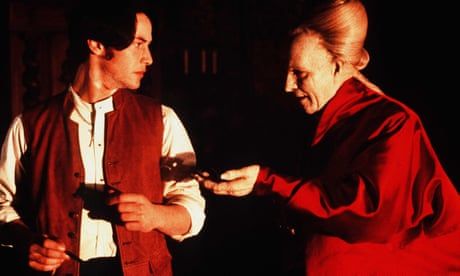
Thirty years before Megalopolis, there was Coppola’s other deranged, maximalist fable about love lost, starring Gary Oldman as the terrifying Count
This year marked the long-awaited return of the American film-making legend Francis Ford Coppola to the cinema, with Megalopolis: a $120m self-financed “fable” with a go-for-broke sensibility, about a time-defying architect trying to build the city of the future in the wake of his wife’s untimely death. Fans of its deranged overtures may do well to revisit Coppola’s other maximalist fable about a time-defying man grappling with his wife’s untimely death: Bram Stoker’s Dracula.
It was lead actress Winona Ryder who first brought the project to Coppola – as an apology after she abruptly quit Coppola’s third Godfather film (to be infamously replaced by his daughter, Sofia). Coppola’s version of the gothic novel brings the bloodthirsty Count (a brilliant Gary Oldman) out of the shadows and into the forefront, reimagining the character as a tragic war hero, who – in renouncing God after the suicide of his wife, Elisabeta (Ryder) – is condemned to eternal life as a vampire. Years pass, and the shape-shifting Dracula discovers that the reincarnation of his wife, Mina (also Ryder), resides in 19th century London, where he eventually seduces her at the exhibition of a newfangled entertainment: the cinematograph.
Continue reading...